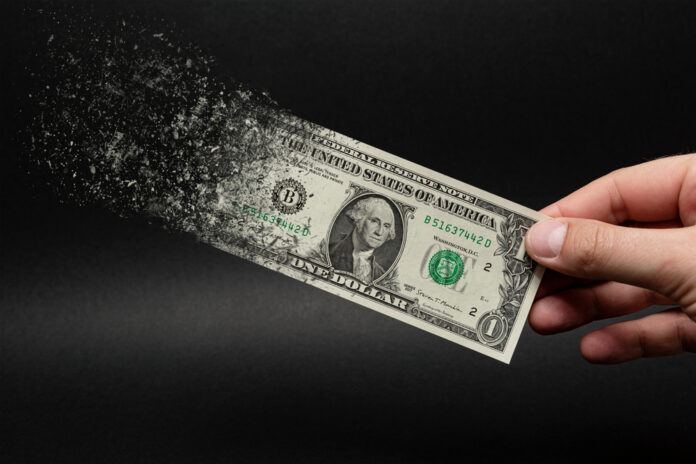The U.S. dollar rose on Wednesday, benefiting from its safe-haven status and building on the strong gains from the previous session. This came after a missile attack by Iran on Israel, which further escalated tensions in the region.
Dollar Rises Amid Middle East Escalation
The turmoil in the Middle East intensified overnight, with Iran launching ballistic missiles at Israel in retaliation for the recent assassination of Iranian-backed Hezbollah leader Hassan Nasrallah and Israel’s ground deployment in Lebanon. Iran has reported that its attack is complete unless further provocations occur. However, Israel has promised a response, raising concerns that the United States, one of Israel’s closest allies, could become involved in the regional tensions.
“The escalation in the Middle East has led markets to price in an increased risk of a full-blown conflict in the region, which could involve the U.S.,” analysts at ING said in a note.
The dollar was also supported on Tuesday by better-than-expected U.S. job openings data, especially as markets await the official monthly jobs report due on Friday.
“Although ISM manufacturing data was softer than expected and prices paid fell below 50.0, the Fed is focused on the labor market. The surprising rebound in job openings for August contributes to a near-term bullish case for the dollar,” ING added.
The ADP nonfarm employment report for September is due to be released on Wednesday.
Euro Shows Signs of Stability
In Europe, the EUR/USD traded flat at 1.1067 after experiencing its largest drop in nearly four months on Tuesday. This drop came on further signs of cooling inflation in the eurozone.
The region’s inflation rate fell below the European Central Bank’s (ECB) target of 2.0% in September, and traders will closely watch comments from ECB officials, including Vice President Luis de Guindos and Chief Economist Philip Lane, for more guidance on the central bank’s monetary policy outlook.
Citigroup, in a note published Tuesday, reported that it now expects the ECB to cut interest rates by 25 basis points at its October 17 meeting, with additional cuts expected in December and through early 2025, bringing the policy rate to 1.5% by September 2025.
Meanwhile, GBP/USD was up 0.1% at 1.3293, still well below the previous week’s high of 1.3430, a level not seen since February 2022.
Yen Retreats Amid Interest Rate Uncertainty
USD/JPY rose 0.3% to 144.06 after Japan’s newly appointed Finance Minister, Ryosei Akazawa, said on Wednesday that Prime Minister Shigeru Ishiba expects the Bank of Japan (BOJ) to carefully assess the timing of raising interest rates again.
Minutes from the BOJ’s July meeting, released earlier this week, indicated that policymakers were divided on how quickly the central bank should proceed with further interest rate hikes.
Meanwhile, USD/CNY climbed to 7.0185, with the yuan remaining quiet as Chinese markets are closed for Golden Week, which runs until next Tuesday.



